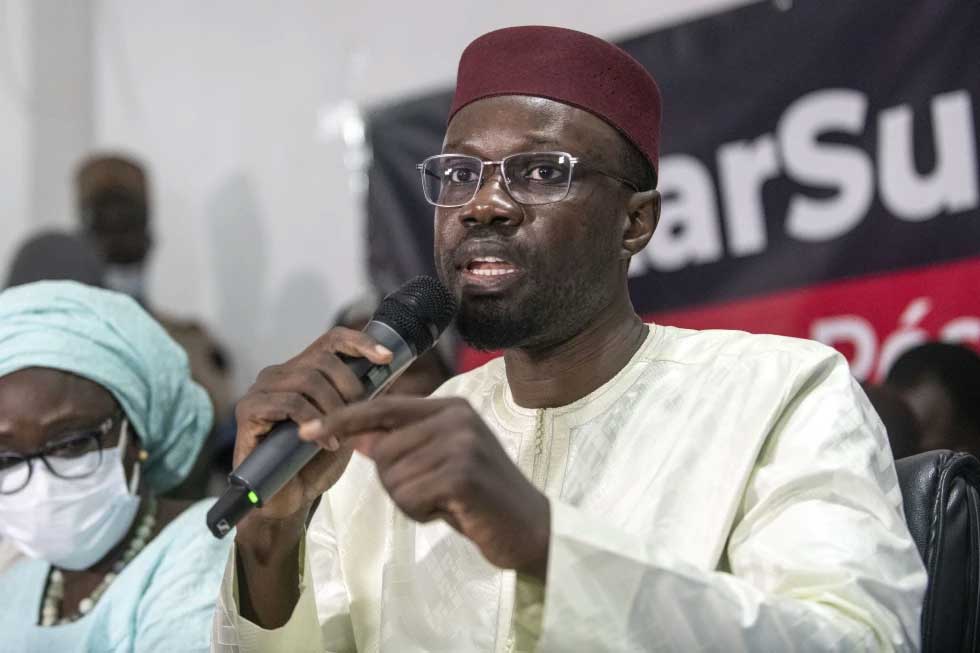Senegal lesbian activists fighting for visibility in a hostile nation
Moïse Manoël-Florisse, is an African-Caribbean online journalist keeping an eye…
Senegal lesbians face ‘corrective rape’ and a host of other abuses

Homosexuality has once again become a focus of debate among the political classes in Senegal, where newly appointed Prime Minister Ousmane Sonko has alternately claimed that homosexuality is tolerated in the nation, and advocated for harsher criminalization of same-sex intimacy.
Senegal lesbians and gays already face penalties for same-sex intimacy, with up to 5 years’ imprisonment and fines of 1.5 million CFA francs (approximately U.S $2,500), making advocacy for LGBTQ rights extremely difficult.
Erasing 76 Crimes spoke with two Senegal lesbian activists about their experiences organizing for lesbians’ rights in the face of prevailing homophobia in Dakar. For their safety, we have agreed to identify them only using pseudonyms.
Awa (pseudonym): I’m the president of a women’s association [Editor’s note: for security reasons, the name of the organisation is being withheld] in Dakar and I can say that in the current political and social climate in Senegal, lesbians, although invisible in the public debate, are often exposed to corrective rape at an early age.
Very often, when a family suspects that a young girl is a lesbian, she is taken by force to a marabout who, far from giving her a religious education, will rape her. This does not happen all the time, or in all social contexts, but in rural Senegal it is far from rare.
Then there is the psychological reconstruction work that needs to be undertaken, with a lot of listening, tact and solidarity towards young women who arrive in Dakar weakened and traumatised when they have managed to escape from their family environment, after several years of forced marriages. In that sense, nothing has changed, despite the passing years.
Erasing 76 Crimes: How do you explain the fact that homosexuality has been a national debate in Senegal for several years now, unlike in other countries in the region?
Awa: Although homosexuality is already severely punished in Senegal, it is the subject of a national debate, because several years ago, around a decade ago, the NGO Jamra, whose spokesperson is Mame Mactar Gueye, was approached to continue its work in community health prevention, particularly on issues of gender-based violence or reproductive health, because of its relations with the country’s highest religious authorities and its social vocation across the country.
Having lost funding and been sidelined by other civil society organisations that are more representative of the publics concerned, thanks to a more secular and inclusive approach, Gueye, who is now a politician and a head-on opponent of his former protégé Ousmane Sonko, has deliberately fostered an aversion towards LGBT+ groups, regularly calling into question our legal existence, through the issue of administrative receipts issued by the Ministry of the Interior.

No solidarity for Senegal lesbians
Erasing 76 Crimes: Is there any kind of sisterhood between women’s associations in Senegal, with regard to Senegal lesbians? What are your areas of advocacy?
Guadalupe Diakhoumpa (pseudonym): Feminist associations are not interested in Senegal lesbians, even if we recognise each other. The Senegalese feminist movement is not yet open to our grievances. So we work more with civil society organisations that work with audiences of men who love men, to try to exist and be visible.
Awa (pseudonym): As we are carrying out some food and hygiene support actions for lesbian women detained because of their sexual orientation, our advocacy priority is to prevent homosexuality from being over-criminalised in the country by the autumn, with the probable advent of a new majority in the Chamber of Deputies. [Prime Minister] Ousmane Sonko has pledged to toughen the criminalisation of homosexuality with penalties of up to 10 years in prison and €7,600 in fines in a country where the average monthly salary was €146 in 2017].
Secondly, although there are a few bars where lesbians like to meet up in Dakar, we lack a place of resources to invest in the psycho-social well-being of the community. This is our second area of work.




